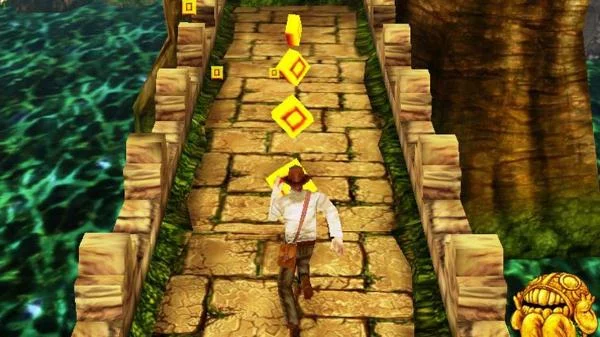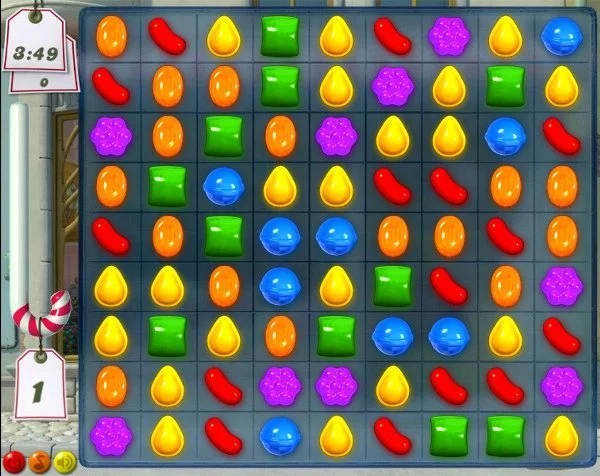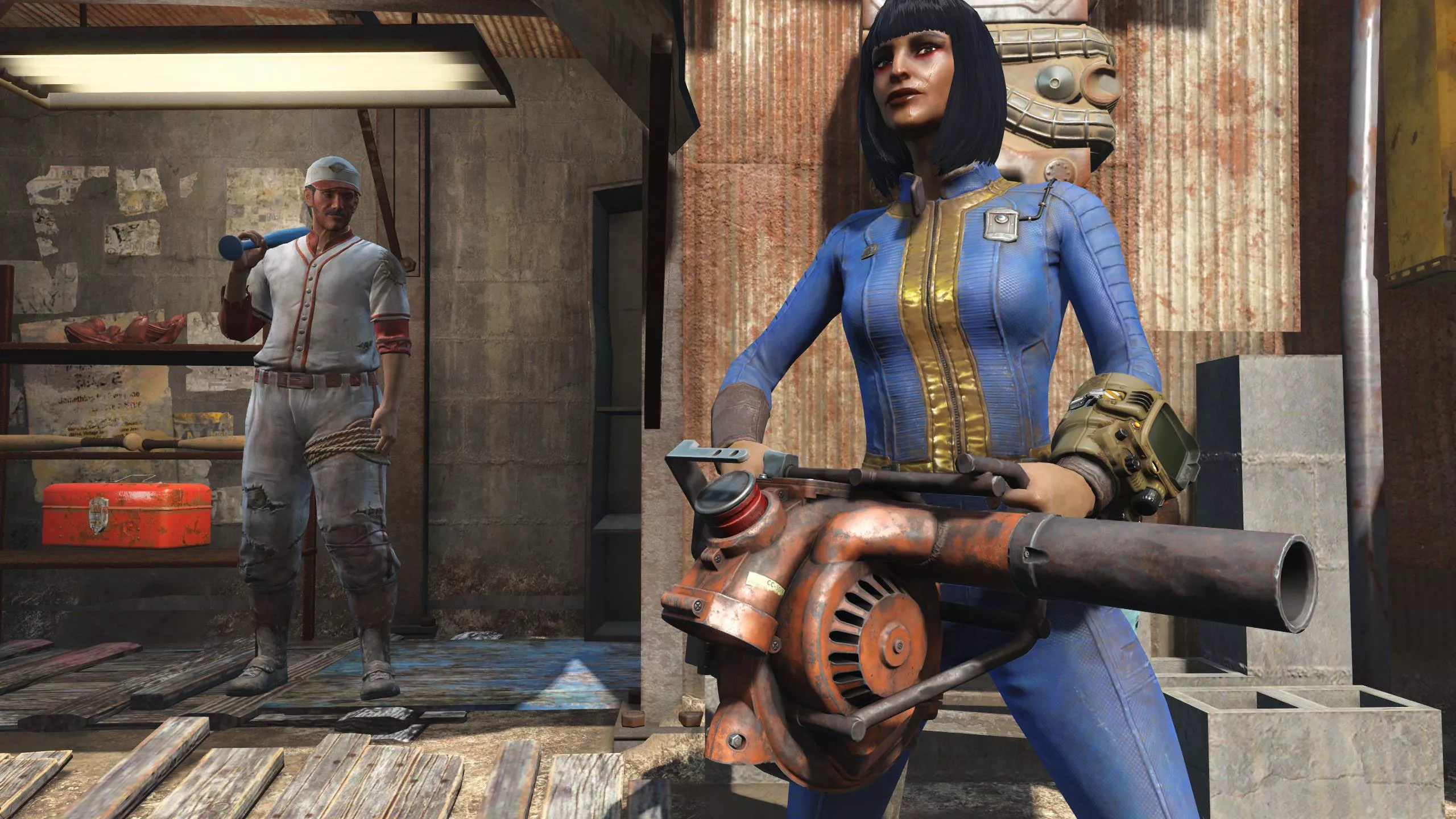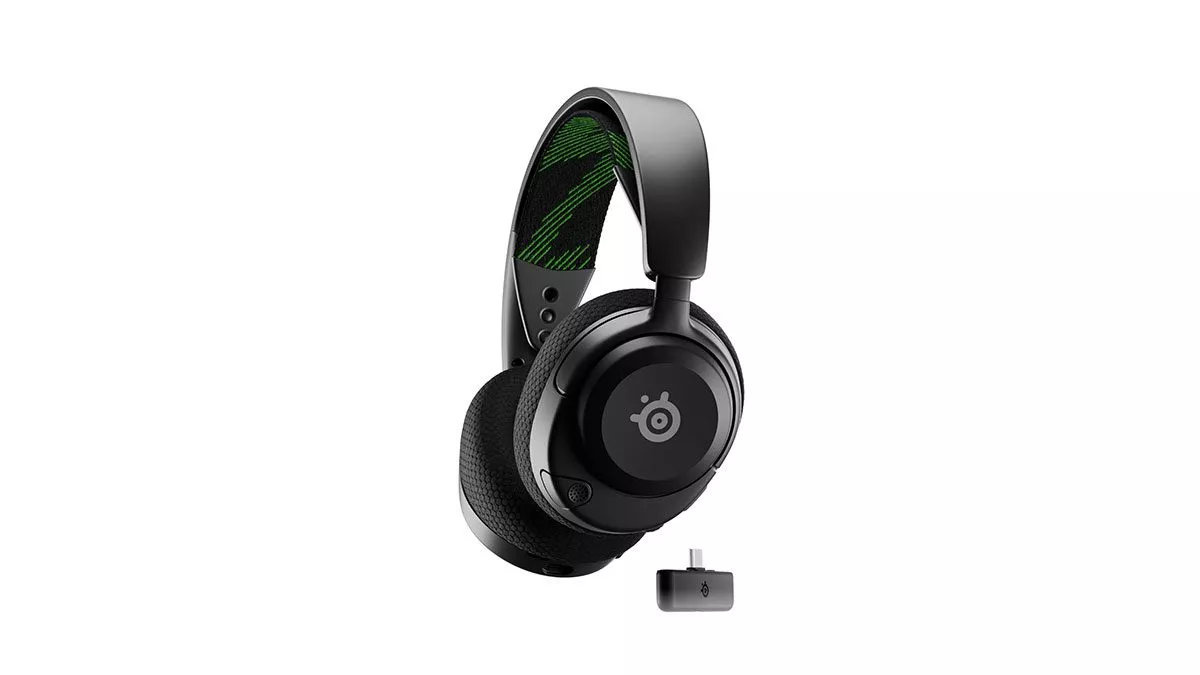Microsoft versus Sony, Battlefield versus Call of Duty and Forza versus Gran Turismo. These are some of the rivalries that can get people talking about console wars. “Game On or Game Over” is your place to get inside the minds of Nicholas and Andy as they seek to find the true meaning of gaming and tackle some of gaming’s most controversial subjects. Both are award winning authors – although the awards haven’t been mailed or created yet — but trust them. Would they lie to you?
Andy: We’ve done a lot of articles and being “slightly” biased, I think one or two have been pretty good. But, I want to get real with this week’s article and touch on something that’s been in the news quite a bit the past couple of weeks. That of course being the virtual reality craze that seems to really be taking on a life of its own. At the Game Developers Conference, Sony showed off their headset and Project Morpheus demo, Microsoft, of course, countered with a press release saying they too have been working on a VR setup for a while as well. Then just last week the folks behind the Oculus Rift threw the gaming community into a tizzy by selling it to Facebook for $2 billion dollars. It’s hard not to have read, watched, or thought about gaming and virtual reality these past couple weeks.
Now, sidestepping the whole Oculus/Facebook thing for now, I really wanted to discuss VR as a whole. So, let’s start with just your general overall impressions of what you have seen so far. What do you think, is this something that gamers should get excited for or is this another Nintendo Power Glove waiting to happen?
Nicholas: I won’t lie, I’ve actually been thinking about the possibility of virtual gaming for a while now. To be exact, it started with the launch of the Wii, where Nintendo tried to shift gaming away from using just a traditional controller with buttons as a form of input and interactivity. Since then, I’ve thought about where gaming would inevitably go. Would the controller always be there? Will we move into a more motion-sensor style of gameplay? Would gaming eventually become virtual reality, wearing a headset or using some sort of device to project a new world for us to game and interact with?
To answer your question though, I don’t like it. I grew up with consoles like the SNES, the N64 and the GameCube, and for each of those I used a controller, and for me, that’s exactly how I want gaming to remain. I look at things like Nintendo introducing motion-sensor input with the Wii, and Microsoft slowly moving away from using a controller with the Kinect, and none of it really excites me. To be honest, I actually find it a little irritating. Perhaps I’m in the minority here, but when I play games I don’t want to wave my hands about like a lunatic, I don’t want to exert any real energy and most importantly, I don’t want to wear some ridiculous headset. For me, this is where my disliking for virtual reality really begins.
I guess off that you can probably already assume what I’m going to say to answer your second question. No doubt, virtual reality in the home is a major step (not necessarily forward) for gaming, and for this reason I can see why gamers would get excited about this, but it just seems to me like every other futuristic advancement that we’ve talked about or seen in the past. Think of any television show or movie you’ve watched that’s set in the future. Think of movies like ‘Gamer’ where a real-world character is controlled remotely by another human, or even something like the hover board from ‘Back to The Future’. These movies try to predict what will be the next ‘big’ thing in 20 years’ time, but like 3D televisions, it comes across as nothing more than a gimmick. Sure, you’ll play a few races of Forza Motorsport and you can pretend you’re the racer, or a few games of Titanfall and pretend you’re a pilot, but I don’t think everyone’s going to adopt it, and I don’t think people will continue to use it.
But enough about me because if I don’t stop I’ll be ranting forever. What are your thoughts on virtual reality in gaming? Is this something you can see yourself adopting and do you think we’re on the verge of revolutionising gaming as we know it?

Andy: If you look back at the history of gaming the past thirty years there have been several, shall we say innovations, that were all the rage and hailed as game-changing. Some of those innovations stuck around and were improved upon, while others were left to the wayside after the fad dissipated. Just look back at things like the Power Glove, the Dance Dance Revolution dance pad, Duck Hunt and the zapper and Nintendo’s Virtual Boy. It may be too early to tell, but as you mentioned 3D gaming seems to be going down the same route. It seems like something people want to try, but then quickly move away from using it consistently. The same thing happened with 3D televisions, there was a lot of hype when they first started rolling out but it faded into just a footnote and never really grabbed hold.
My first impression of this current wave of Virtual Reality news is; I really don’t care. As it stands right now I just don’t see it catching on as a home consumer type of device for several reasons. The cost of a home unit will be a major factor, many people were complaining about spending $500 USD for an Xbox One. I can only guess how much a VR headset will be, and even then how many games will be made for it. Look at the Wii U as an example of developers not being willing to make games for something that has a relatively low install base. The bulkiness of the devices, sure with advances in technology things can be made smaller and lighter – but I have to think that a VR headset can only be so small. The bulkiness will still be there and after the initial giddiness wears off I’m not convinced it will be something that people keep coming back to.
Of course when people talk about VR they will use the expected buzzwords when it’s being discussed. Words like immersive, enhanced gameplay, experience like never before, etc. My worry is once that initial feeling is over VR will be just another product/peripheral that will be largely forgotten and ignored. So far we’ve both been less than enthusiastic about the potential VR revolution. So I thought maybe we could talk a little bit, personal biases aside, about what benefits VR could potentially bring to gaming. What do you think, looking from the outside in, what thing or things should gamers really be looking forward to?
Nicholas: I was thinking about it last night actually. Just imagine how awesome a game like Formula One 2014 would be if you were playing the game with a virtual reality headset on. For racing games, the ability to really have a full view of your surroundings where you only had to move your head to see the cars and scenery around you would be fantastic. I suppose this could be translated into any kind of game too – picture walking around in a game like Mass Effect and taking in the sights of the galaxy or whatever environment you’re fighting on. There is little doubt that if done correctly, virtual reality would really add a dimension to gaming that offers a level of diversity much greater than what we’ve seen before.
That said though, there’s a really important point that I think we need to address before we talk about how much greater virtual reality could make gaming – motion sickness. In listening to last week’s episode of the Friendly Fire Show, the guys spoke about how using the Oculus Rift made some of them feel a little ill, and this is a serious drawback in VR ever becoming a permanent feature in home gaming. Have you had any experience in using these VR headsets? Have you felt or known someone who gets these feelings of motion sickness from using them? In your opinion, until the designers can figure out how to avoid this, will it prevent units like the Oculus Rift from being adopted by all people?

Andy: Oh man this is actually something that is near and dear to my heart. I’ve actually had a chance to use a VR headset, but this was years ago and was at the Mall of America here in Minnesota. There were 10 units and it was some generic FPS of 5 v 5 with a Halo-type feel to it. Mind you this was probably 15 years ago, but I gave it a try and spent my $5 on it for a 15 minute session. Four minutes in and I was begging for the headset to come off and had my eyes squeezed shut ready to toss my lunch all over the platform. To say I felt terrible would be an understatement. My entire body was out of sorts, I have to imagine it was similar to being sea sick. It’s not a feeling I am looking forward to feeling again any time soon.
I’ll take it a step further though, there are still games on the Xbox 360 that I can’t play because of motion sickness. Portal 2 is one of the big ones, Mirror’s Edge, heck on the PS2 there’s a game called Gex which I played it for five minutes and threw up all over the floor. Most gamers will probably chuckle and say I’m being overly dramatic, but for those of us in the minority it’s a very real thing. My past experience with a VR headset have certainly influenced some of my personal bias in regards to it, but I can see some of the benefits as well. Provided, like you said, the developers are able to design in a way that motion sickness is eliminated from the equation. The last thing I want to do is drop several hundred dollars on something that could potentially make me sick.
I am willing to admit the struggle of a few (us motion sickness prone gamers) does not outweigh the benefit to gaming as a whole. Your racing example would be an absolutely amazing experience, and mentally I can picture some pretty interesting VR concepts that others may enjoy. What if in addition to the VR headset they included a small wristband type thing that tracks much like a motion capture suit ball. You place it on your wrist and have to actively look down at your wrist to bring up a menu. Or even a step further a VR headset paired with a Kinect and you get something similar to an Ender’s Game type experience. The possibilities are endless and the results could be fantastic. ‘Could be’ being the key words. I know neither of us have first-hand knowledge, or claim to be smart computer people, but do you think the technology is there, and ready, for a true VR experience to take off any time soon?
Nicholas: Anytime soon? No. Eventually? Certainly. We seem to fall into this trap where we think that new technology is able to fully realize its potential from the moment it launches. To make that a little clearer, there is no better example than the Kinect. When Microsoft announced their new peripheral a few years ago, it seemed revolutionary – it could scan everyday items into a virtual world, you could control games perfectly with your hands and there was even that virtual companion that seemed to be as interactive as a real person could be. Many years later and we are hardly using it for any of those functions – to be honest, all I use my Kinect for is to turn my console off and use it as a way to chat with people in a party. Now that’s not to say it can’t do all those things Microsoft promised us, but it will take some time. Virtual reality is no different.
If the a device like the Oculus Rift goes into full production and is actually adopted by developers, to begin with, all I can see it being used for is a means to look around in-game. I don’t expect we’ll see it coupled with other devices to start with, and I can’t see it being a way for us to interact with virtual menus or all that other ‘cool’ stuff that is often shown in futuristic movies for example. It’s going to take time for developers to familiarize themselves with the technology and then think of interesting ways to implement it into their games.
You mentioned the acquisition of Oculus VR by Facebook at the beginning of the article, and if I may, I’d like to touch on this further. When the news broke opinions were divided – while some where worried that Facebook would ruin Oculus Rift, others were excited by the potential that $2 billion could mean for the product’s development. What were your thoughts on it?

Andy: It’s funny isn’t it, when an announcement is made people take to the internet to complain about it without really understanding the why behind it. In this case people saw the name ‘Facebook’ and immediately thought the devil has just screwed up something great. It’s easy to label Facebook as the bad guy with a big wallet that can buy whatever they want, and to a point that’s true. Here’s the thing though, remember when Facebook bought Instagram and people were outraged and said they were going to close their accounts etc. I still see people posting photos on that every day. It’s easy to be on the outside looking in and think that you know what’s best for everything. But, let’s be completely honest here, the only people who know what’s best for the overall development of the Oculus Rift are those who have been making it for the past couple years.
I’ve read several articles about the sale and as odd as this is for me to admit, Cliff Bleszinski said it best. He said that by selling to Facebook for that amount of money, Oculus Rift actually freed itself from not only budget constraints but also being a slave to existing software. They can now afford to develop their own software to match their hardware. They can afford to take a risk here and there and not pigeonhole themselves into decisions that may not be best for the overall product. If you’re a fan of allowing developers true free reign and the ability to take risks with innovation then I’m really not sure how the sale can be seen as a bad thing really.
Here’s the thing though, even with the $2 billion Facebook acquisition where does Oculus Rift go from here? better yet what does the road look like for VR devices as a whole? I know both Sony and Microsoft have said they have sets in the works, with Sony being a little more visible with what they have but is this legitimately something they gamers can expect to have in their homes? Personally, I don’t see this being a home device for quite a while based on the disadvantages I talked about above. So, to keep VR at the front of gamers minds do they then start setting up large VR booths at conventions, maybe large malls, expos etc. to really test it out and work out kinks, while at the same time making it more affordable and shrinking its footprint to make it home friendly?
Nicholas: Without a doubt, companies like Microsoft, Sony, and Oculus VR need to continue on developing these systems- it can’t simply be a case of making a product, releasing it and then not doing anything further. Keeping with the Kinect example before, we’re now up to the second version of the peripheral and I’m confident that we’re still very far away from seeing it’s true potential – virtual reality will be no different. All the major players (pun intended) will need to promote the hell out of their VR units if they’re going to see it truly succeed in the industry (and in homes). Yes, right now we’re riding on the hype of new technology, and there’s also this hype that people have of wanting to support a new project on Kickstarter and see it take life, but if Microsoft and Sony really want these things to become commonplace, they’re going to need to work hard on selling the units and their possibilities. This has to include large conventions like E3 and PAX, and I wouldn’t be surprised if they had demo units at stores like Electronics Boutique or GameSpot.
All this said though, so far we’ve been going off this assumption that VR will become a household item, and this is something I’d like to look into. Like you mentioned at the beginning of this article with the Wii U, no matter how revolutionary the technology is and no matter how ‘cool’ it seems, if the manufacturers can’t get developers to make games to support their new hardware, then it’s as good as useless. We found out with the Facebook acquisition last week that Mojang would no longer be working on integrating Oculus Rift with Minecraft, and this has to be a blow to Oculus VR in getting its product out there. While virtual reality has the potential to offer a whole new level of immersion to gamers, do you personally think that developers are going to take up virtual reality in future games, or will it be nothing more than a gimmick like the Kinect is now, destined to be a label you see on the game box that people just rolls their eyes at?

Andy: Ah, that’s the million dollar (or should it be $2 billion for this instance) question isn’t it. I think you’re spot on when you say that Microsoft and Sony will need to take marketing to a whole new level if they really want to get it into the homes of consumers, provided they can get the costs down to a reasonable level. I think that’s going to be one of the two big hurdles for VR technology – can they get it to a price point where they won’t lose a ton of money per unit, but where the consumer doesn’t have sticker shock and run away from it? Second, as you said, will developers make games for it? That’s a tough one to answer. It’s easy to say “Of course they will”, but look no further than the Kinect. How many purple cases do you see on store shelves, sure some games say “Better with Kinect” but aside from dancing/fitness games I’m not sure of other AAA games that actively go out of their way to use the Kinect. Maybe part of this is developers not really understanding the potential of the Kinect. Maybe it’s a consumers unwillingness to adopt the technology. What I do know is there aren’t many developers that will put a big budget game out there if there’s little to no install base for it.
Going back to the Oculus/Facebook deal though. This is a direct benefit of the deal for Oculus, they don’t need Sony or Microsoft they can essentially make their own game system and games. Cool tech it cool tech though, there’s usually an initial moment where it’s all the rage and then it fades away for a little bit only to re-emerge down the road and remind people it’s still around, sometimes it fades away and doesn’t come back. Remember when the Xbox One was announced and then they announced something that actually looked really cool… The IllumaRoom. Seriously, look it up if you’re not familiar with it. That’s a piece of very cool tech right there that can really increase the immersion of a game. Realistically, I think something like that is the next evolution of gaming. VR has been tried before in varying degrees and has never caught on, and it goes away for several years and then comes back for another go. There are so many factors that need to be worked on before it will be a direct-to-consumer device. But, I’m all for evolving the gaming genre if for no better reason than it always paves the way for yet more innovation.
To close this out though I had a final question for you. Do you think VR tech is just a gimmick and do you think developers will be interested in essentially making million dollar bets that it will catch on? We talked a couple week ago about developers releasing fewer games, do you see this as something EA, Activision, Ubisoft, et al is willing to gamble on?
Nicholas: Personally, I think they will, but it’s not going to happen until Microsoft and Sony launch what they’ve been working on. You raised a really interesting point with Facebook’s acquisition of Oculus VR, and how such a large injection of money into the company means they don’t need to rely on the big console giants to support their hardware. I think with Zuckerberg now owning the company, publishers like Electronic Arts and Ubisoft might not design games for the Oculus Rift (well, not full AAA games anyway), but much like with Kinect, I think it would be a lost opportunity if they didn’t utilise this new technology in some way.
All that said though, it really will go back to what we’ve been discussing this entire article – time. As you mentioned, there is (and there’s going to be) a lot of hype surrounding virtual reality right now, and I have no doubt that the major publishers are going to want to tap into that group of early adopters who buy the new VR units the day they are released. As for how those games actual make use of the virtual reality technology, well, as I said, it’s going to take a while before we see it truly utilised properly. If Microsoft and Sony are serious about supporting VR then it will most likely flourish into something really cool, but if they don’t see people taking as big an interest in it as they planned, it will end up just like how the Kinect is now, a mere gimmick and just a another feature to promote on the game box.
At the beginning we were both fairly dismissing of virtual reality in gaming but as the article has gone on, we’ve certainly acknowledged the potential benefits it could bring to this industry and gaming. Do I still think, in light of all that’s been said, that VR is still a gimmick? Yes, and I think like 3D gaming, motion sensors and Kinect, virtual reality will not (at least for the near future) change gaming as we know it. We’ll see it implemented here and there, but I’m sceptical that we’ll see anything major for a while. The fact still stands, gamers just want to sit down and play games, and while graphics have gotten better, games have become more detailed and consoles have become more powerful, we’ve continued to stick with playing games with a TV, a console and a controller, and if that’s lasted this long, I’m betting that it’s unlikely we’re going to change that any time soon.
Tune in next time for the next instalment of Game On or Game Over. If you have any ideas for our next article, feel free to contact Andy or Nicholas on Twitter.
This article may contain affiliate links, meaning we could earn a small commission if you click-through and make a purchase. Stevivor is an independent outlet and our journalism is in no way influenced by any advertiser or commercial initiative.
























